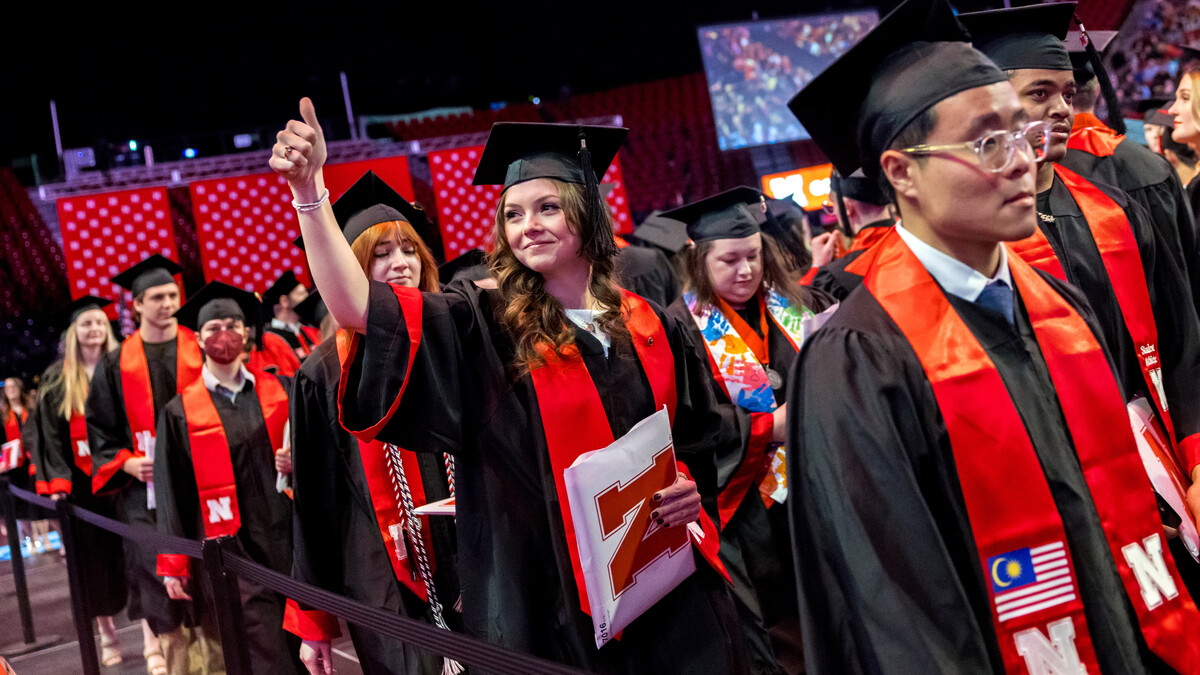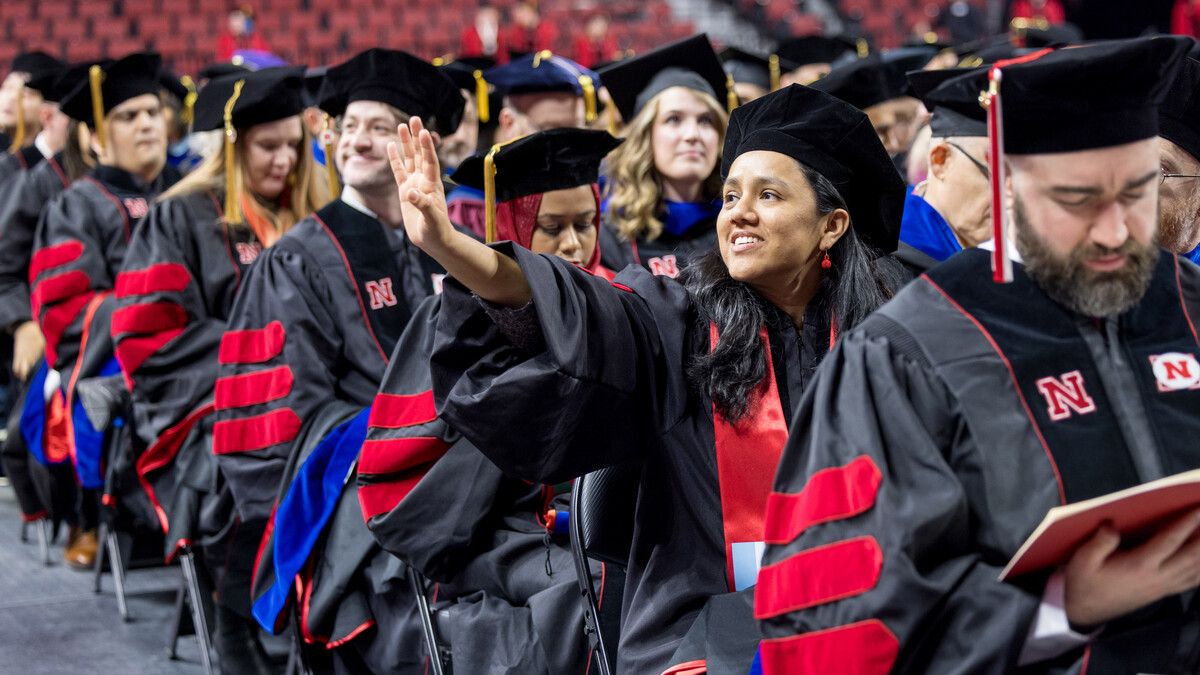
The spring 2017 Agronomy and Horticulture Seminar Series begins with “Using formative assessments to improve critical thinking and writing skills” at 3:30 p.m. Jan. 20 in Keim Hall, Room 150. Refreshments will be served at 3 p.m.
Sydney Brown, assistant director, Innovative Instructional Design, Online and Distance Education, will present the first seminar. Faculty know writing improves critical thinking and that writing skills are essential for future success, but find giving feedback on and grading long written work, such as term papers, to be prohibitively time consumptive. In this seminar session, we will look at four assessment techniques making use of short written work that improve high-level learning such as analytic thinking and synthesis, but which also improve writing skills and give faculty keen insight into students’ understanding of course concepts.
The rest of the seminars will be on the following Fridays:
• Jan. 27 – Chuck Hibberd, dean and director, Nebraska Extension, will present “Thinking differently about extension work.” Advancement in teaching and learning methods for Extension professionals is evolving the way they engage Nebraskans. Also, the roles of Extension educators and specialists are evolving, thinking about collaboration and accomplishment. Our opportunity in this age of digital engagement can strengthen our relationships with learners in ways that enhance outcomes. This will be an interactive seminar on modern Extension methods and applications.
• Feb. 3 – Jenny Keshwani, science literacy specialist and assistant professor, Biological Systems Engineering, will present “Engineering empowerment: Science literacy through engineering design.” The IANR Science Literacy Initiative fosters a society with an enhanced capacity, for both individuals and groups to make effective decisions grounded in STEM-informed analyses of complex, real-world challenges. In this presentation Keshwani will describe several projects that use the engineering design process to promote science literacy.
• Feb. 10 – David Holding, associate professor, Agronomy and Horticulture and Center for Plant Science Innovation, will present “Functional genomics investigation of seed and vegetative development in maize and sorghum.” This seminar will describe the generation and characterization of mutants for identification of modifier genes in the high-lysine Quality Protein Maize variant. Holding also describes our mutagenesis, mapping and candidate gene pipeline for general functional genomics of seed development and mineral homeostasis in maize. Finally, he describes a gene editing approach for improving sorghum digestibility.
• Feb. 17 – Charles Francis, professor, Agronomy and Horticulture, visiting professor of Agroecology, Norwegian University Life Sciences, will present “Creating a new generation of systems thinkers: Agroecology and phenomenology.” Agroecology has emerged as an alternative and holistic approach to systems thinking in education, applying phenomenology and practical experience along with science as valuable foundations for learning. Working with farmers and food system professionals, student teams use open-ended case studies to pursue education for responsible action. Agroecology explores production, economic, environmental and social dimensions of food systems, with innovative programs in Norway, U.S. Midwest, Sweden, Uganda, Ethiopia and India, as well as many countries in Latin America.
• Feb. 24 – Chris Proctor, assistant extension educator, Weed Management, Agronomy and Horticulture, will present “Translating research into impact: Thoughts on weed science extension.” The importance of research data to inform extension outreach is widely recognized. Nevertheless, one of the challenges facing extension professionals is effectively translating research data into impactful information. While this challenge is not new, this seminar will consider how we might continue to make progress on enhancing the impact of extension related research outcomes.
• Mar. 3 – Marty Schmer, research agronomist, USDA-ARS, will present “Corn residue utilization effects on yield, crop water use and the soil resource.” Corn residue or stover has been used for decades for grazing, livestock bedding, or harvested as supplemental feed for beef and non-lactating dairy cattle. There are multiple advantages to utilizing corn residue, including managing residue quantity in high production fields, supplemental revenue, and a simple, cost-effective method of integrating crop-livestock systems. In addition to its use for the livestock industry, corn residue is the primary feedstock for a fledgling cellulosic bioenergy industry. The presentation will look at current USDA-ARS research on corn residue utilization in Nebraska and in the Corn Belt Region.
• Mar. 10 – Greg Sword, professor and Charles R. Parencia Chair in Cotton Entomology, Department of Entomology, Texas A&M University, will present “Exploiting fungal microbiomes for plant stress resistance and improved yields in cotton agroecosystems.” Beneficial fungal endophytes can confer protection to plants from a variety of stressors and improve yields in major agricultural crops. This talk will highlight progress in the targeted application of fungal endophytes in cultivated cotton (Gossypium hirsutum) to mediate resistance to multiple stressors including insects, nematodes and drought, with significant positive impacts on plant performance and yields in the field.
• Mar. 17 – Jenny Kao-Kniffin, assistant professor, Cornell University, will present “Assembling soil microbiomes that modify plant traits.” The soil surrounding roots holds a diverse array of microorganisms that can influence plant development. Microbial experimental systems can be used to tease apart components of the microbiome responsible for trait development in plants. I will be discussing the concept of assembling microbiomes that alter specific plant traits, in hopes of developing microbial technologies that enhance agricultural sustainability.
• Mar. 31 – Paul Staswick, professor, Agronomy and Horticulture, will present “Regulating plants: The diverse and essential roles of hormone amino acid conjugates.” Conjugating amino acids to jasmonic and indole-3-acetic acids is critical for proper regulation of plant growth, development and defense response. Recent study of the enzyme family responsible for conjugation will be highlighted to illustrate their surprisingly diverse roles in activating, inactivating and changing the biological function of these signal molecules.
• Apr. 7 – Reka Howard, assistant professor, Statistics, will present “Response surface methodology in genomic prediction.” Response Surface Methodology (RSM) is a strategy to aid accurate predictions for genomic prediction (GP) methods and will be described in this seminar. RSM will be illustrated with a simulated example on double haploid lines with factors such as the number of progeny, markers, QTLs, genetic architecture of the population, and heritability.
• Apr. 14 – Daren Redfearn, associate professor, Agronomy and Horticulture, will present “Expanding integrated agricultural systems using multidisciplinary research and extension strategies.” The identification, development, and evaluation of agronomically sound, environmentally acceptable, and economically viable forage-crop-livestock systems is fundamental to agricultural diversification. Their efforts towards developing such systems will be described.
• Apr. 21 – Abby Stilwell, plant health safeguarding specialist, USDA Animal and Plant Health Inspection Service, Plant Protection and Quarantine, will present “Emerald ash borer: An agent of change (live stream not available).” Stilwell will address how the emerald ash borer (EAB) and other wood-boring pests transformed landscapes and legislation and what’s being done to manage it. This presentation will discuss everything you wanted to know about the impacts of EAB - but were afraid to ask.
• Apr. 28 – Gui Baigorria, assistant professor, Agronomy and Horticulture, will present “Modeling the effects of climate change on U.S. corn and soybean production (live stream not available).” The projections for corn and soybean production till the end of the century were simulated and analyzed based on the CropClimate platform for US. The results of each individual ensemble member from all the available climate models projecting climate change will be presented.
The seminars are free and open to the public. Seminars will also be broadcast online.







